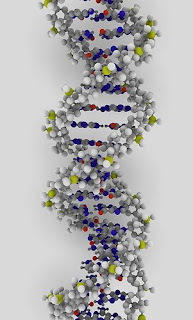
As expected, this afternoon President Bush signed the Genetic Information Nondiscrimination Act ("GINA") into law.
GINA adds "genetic information" to the list of classes of employees protected by the federal employment discrimination laws. It makes it unlawful for an employer to fail or refuse to hire, or to discharge, any employee, or otherwise to discriminate against any employee with respect to the compensation, terms, conditions, or privileges of employment of the employee, because of genetic information with respect to the employee. "Genetic information" means, with respect to any individual, information about such individual's genetic tests, the genetic tests of family members of such individual, and the manifestation of a disease or disorder in family members of such individual. It does not include information about an individual's age or sex, which of course are already protected classes. As is the case with Title VII, GINA only applies to companies with 15 or more employees.
GINA also makes its unlawful for an employer to request, require, or purchase genetic information about an employee or an employee’s family member except:
- Where an employer inadvertently requests or requires a family medical history;
- Where an employer offers health or genetic services as part of a wellness program, the employee authorizes the disclosure in writing, and protections are in place to prevent the employer from discovering individually identifiable genetic information;
- Where an employer requests or requires family medical history from the employee to comply with the FMLA's certification provisions;
- Were an employer purchases documents that are commercially and publicly available (including newspapers, magazines, periodicals, and books, but not including medical databases or court records) that include family medical history;
- Were the information involved is to be used for genetic monitoring of the biological effects of toxic substances in the workplace, but only if written notice is provided to the employee, the employee authorizes the monitoring in writing, the monitoring is required by and complies with a specific law, the employee receives the results, and protections are in place to prevent the employer from discovering individually identifiable genetic information; or
- Where the employer conducts DNA analysis for law enforcement purposes as a forensic laboratory, but only to the extent that such genetic information is used for analysis of DNA identification markers for quality control to detect sample contamination.
If an employer obtains genetic information about an employee, it must maintain the information on separate forms and in separate medical files and threat it as a confidential medical record of the employee, similar to the treatment of other medical information under the ADA. The employer is only permitted to disclose the genetic information to the employee upon a specific written request, in response to a court order, to comply with the FMLA's certification procedures, or other very limited circumstances.
Employees have the same rights and remedies for alleged violations of GINA as they do for alleged violations of Title VII.
While genetic information discrimination may not be the most rampant problem facing employees, GINA nonetheless marks the first significant statutory change to the federal discrimination laws since 1991. Any such change should be cause for all companies to take a look at their current policies and HR practices to make sure that they account for this new protected class.
